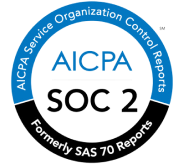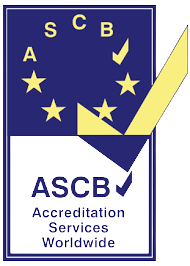It’s tough to build trust with your remote teams initially. Without complete transparency, it’s almost impossible to know if the worker is on track or not. There has to be a constant momentum between the senior and the subordinate. Mutual respect and trust are two core factors that keep remote teams going forward without hiccups.
But when there is change and uncertainty, employees might naturally stop putting too much energy into a team until it feels safe to do so. The antidote is trust. After all, if you don't have confidence, it's like walking in mud. Everything takes a long time to do. Misunderstandings and misunderstandings proliferate, requiring multiple meetings to resolve differences. Otherwise, the mistrust slows down the decision-making process, which directly hampers the overall impact on the business's success. And blame increases, and avoidance of responsibility leads to more conflict.
It's crucial to keep building your team's confidence level as everyone learns the basics. It's more difficult from a distance because it's much easier to rebuild and maintain trust face-to-face. To ensure that team performance does not suddenly deteriorate, the team leader and team members must be willing to change not only how they interact with each other but also their underlying mindset.
For that, HR professionals need to invest in smarter HRMS tools. Because with a smarter and more flexible HR resource management system, employees will work on time and with transparency. Team leaders would know who is on leave, who is working, who is performing extraordinarily well, and who is not. That’s just the bare minimum a software can do for remote teams to come together and create history in the organisation.
Read the blog post below and learn how you can also build trust with your remote teams without confusion.

Steps To Build Trust With Your Remote Teams:
-
Be transparent, responsive and reliable
As a remote team leader, you must embody the values you want to share with your colleagues. Being open and honest helps you build trust between remote team workers. Your demonstration of these qualities encourages team members to do the same.
Also Read: How To Make Remote Employees Feel A Part Of The Team Actively?
These positive behaviours provide a solid foundation for working relationships. Let your remote team members know that you value their input and ideas, even if you sometimes disagree. Hold team members accountable for their work while affirming that you value their open and direct communication.
Also, be responsive and reliable. Remote work can sometimes feel isolating. Let your employees know when you're available to answer questions or concerns at work and check in regularly to see how they're doing. Video conference
-
Schedule regular team meetings
Creating a permanent team meeting is also useful for creating transparency. Without regular meetings, team members may struggle to align project goals or be unsure who to turn to with questions.
Find what works best for your remote teams. Some teams with rapidly changing project needs may find it best to work with quick daily meetings of no more than 15 minutes. Teams working on a longer project cycle may find that weekly or even monthly meetings suit their needs.
It's a good idea to record virtual meetings when some team members work asynchronously. All professional video conferencing software has this feature.
-
Set expectations
Setting clear expectations for your team is another important part of maintaining transparency. When a new person joins your team, let them know what you expect in terms of hours, skills, development, communication, etc.
The trick here is to be clear without being too rigid. For example, instead of requiring team members to work exactly from 9:00 a.m. to 5:00 p.m. in your time zone, you could say they must do the following:
- Work 8 hours a day
- Schedule 3 hours of overlap with a specific time zone each day
- Attend a regular weekly meeting
Doing this makes it clear that you need some level of contact, but you also give your team members control over their working hours. If you set expectations too high, team members can feel micromanaged, which is detrimental to building trust.
-
Set clear goals and objectives
In addition to communicating general job expectations, it's also important to set clear goals and objectives for specific projects. Setting goals and tracking progress set your team up for success. Everyone will understand the role they and their colleagues play, which is essential for building trust.
You can find different ways to set goals for your team. The SMART goal system is often a good starting point.
A SMART goal is:
- Specific: What do you want your team to achieve? Who is responsible?
- Measurable: How will you track progress towards the goal?
- Achievable: Can your team actually achieve this goal with the resources available?
- Relevant: How does this goal relate to your work? Why are you working in this direction?
- Timeline: How soon do you want to achieve the goal?
Also Read: How Employees Enhance Their Work Performances In 6 Organisational Tips?
Without clear goals and objectives, some team members may feel confused about their roles or wonder what their colleagues are doing. Over time, this miscommunication can lead to trust issues. By tracking goals and showing how everyone's progress contributes to the big picture, you can reinforce everyone's goals and bring more clarity to your team.
Remember to work with your remote team when setting goals. You can build strong, trusting relationships by getting every team member's input and buy-in to the process.
-
Identify team roles and encourage accountability
Once you've identified and communicated your team's goals, you need to be clear about everyone's responsibilities. If you don't clearly define roles and responsibilities, you may find that some team members feel like they have too much of a workload. They may think that their colleagues are working less when this is not the case. This misperception can lead to an unfortunate lack of trust.
You can also use the smarter HRMS tool we provide to set challenging, progressive, clear, and flexible goals for your remote teams. They can visit the network and check the core part of their KPIs. Then, they can deliver their work accordingly.
Conclusion
To help organisations create a trusted workplace, we asked HR influencers and thought leaders for their best advice. From setting clear expectations to addressing managerial bias related to remote working, there are several steps employers can take to improve their work culture. Besides that, you can implement all the above tips with the use of uKnowva’s HR management system at your fingertips.












